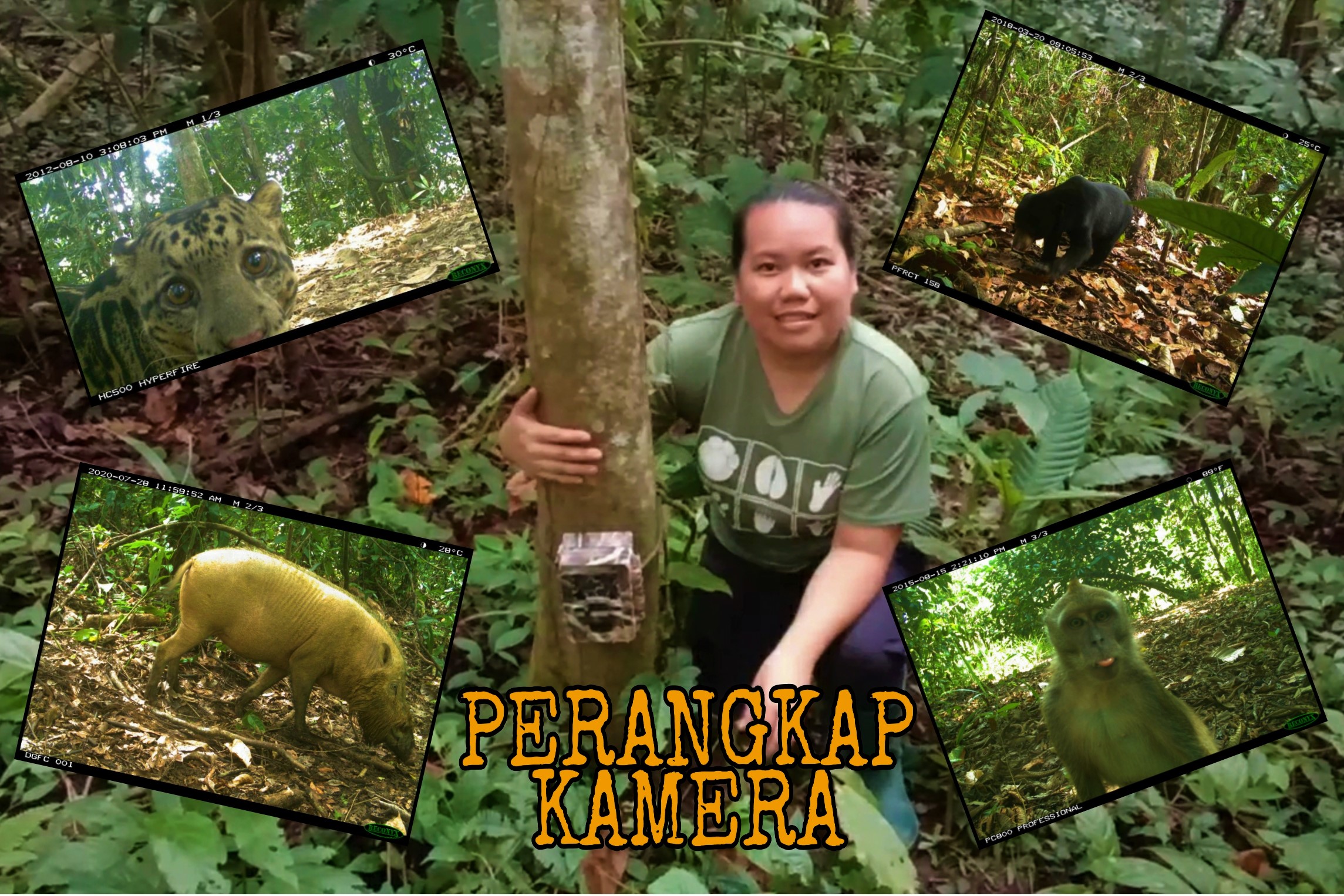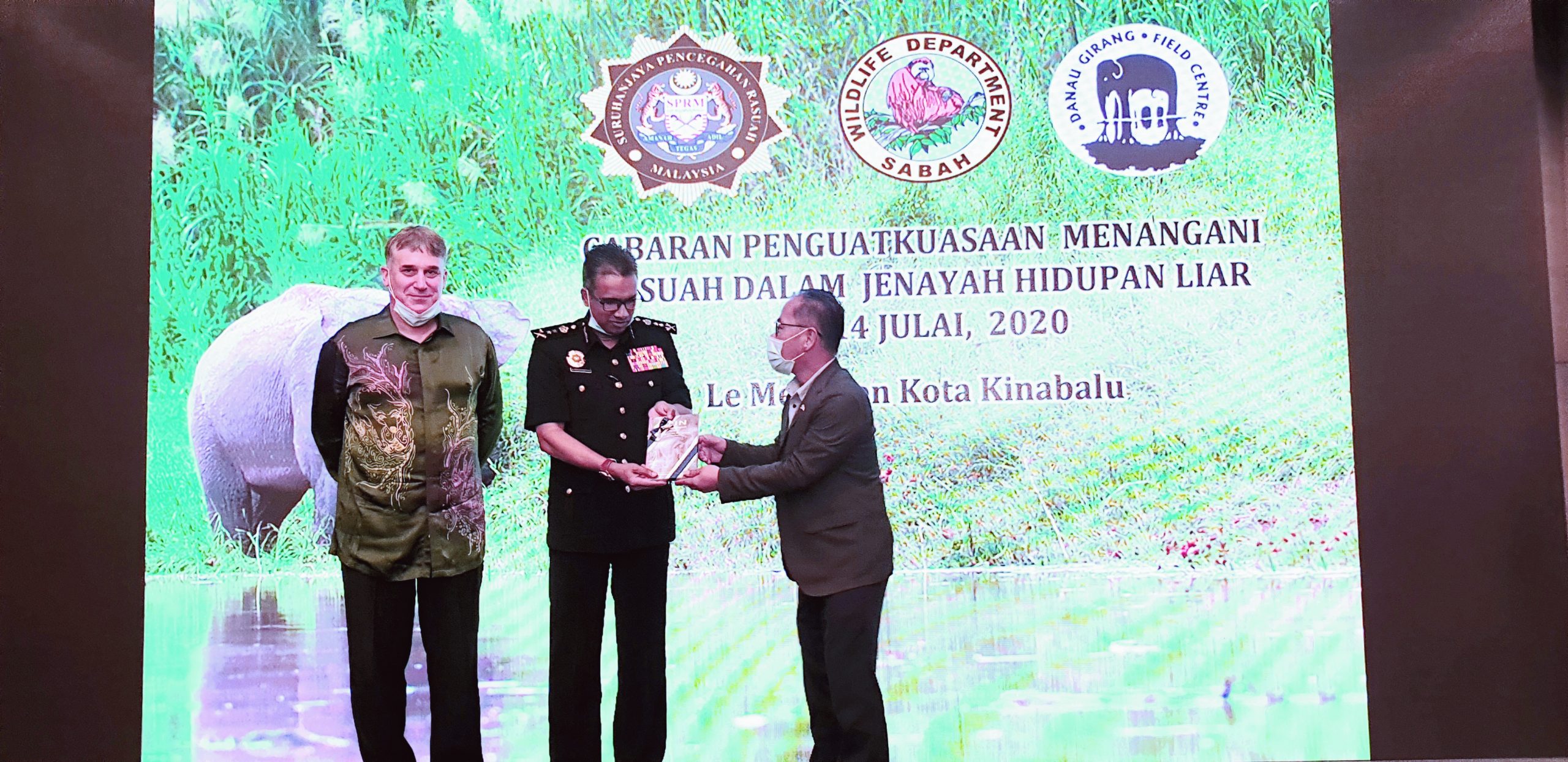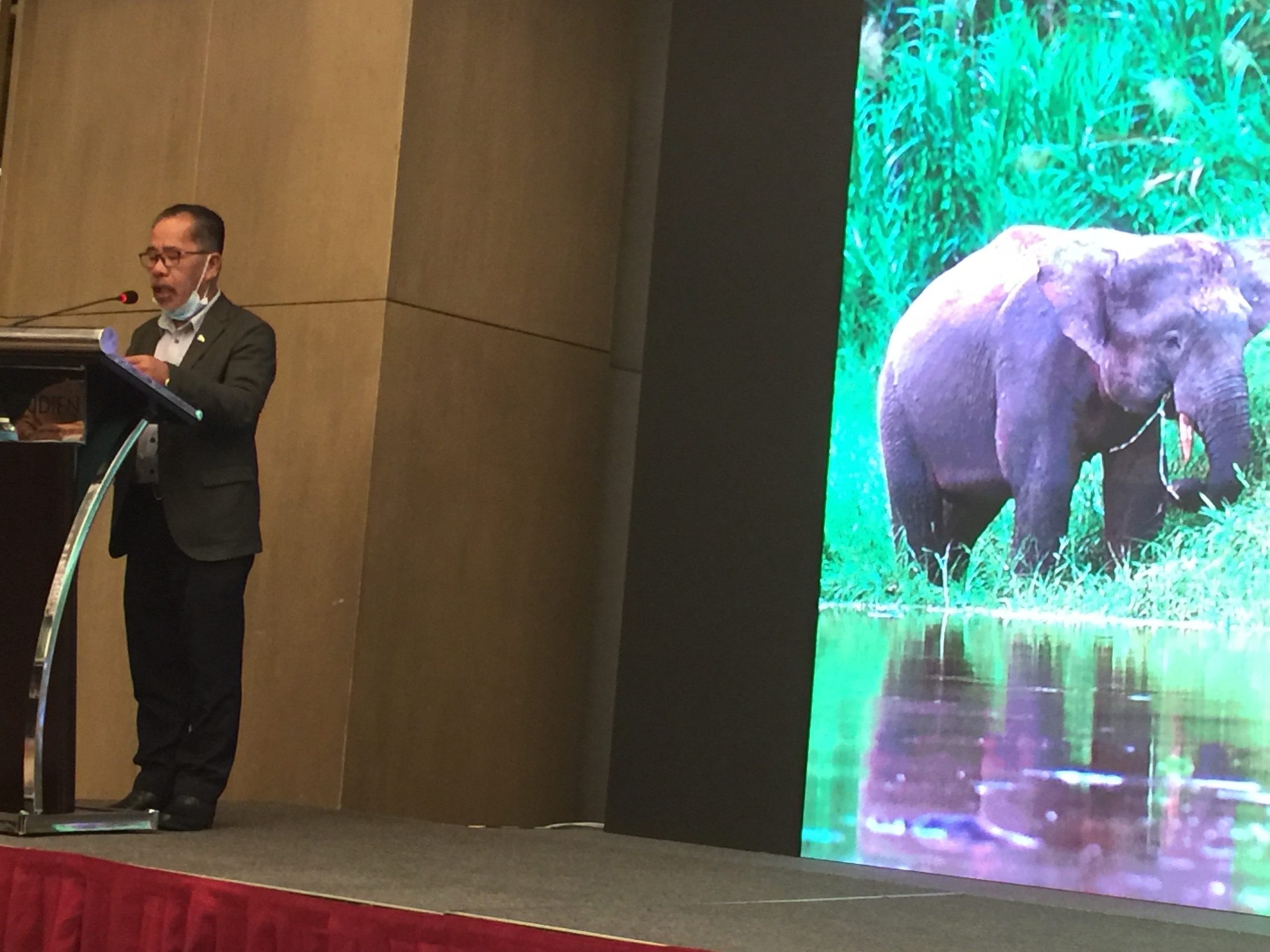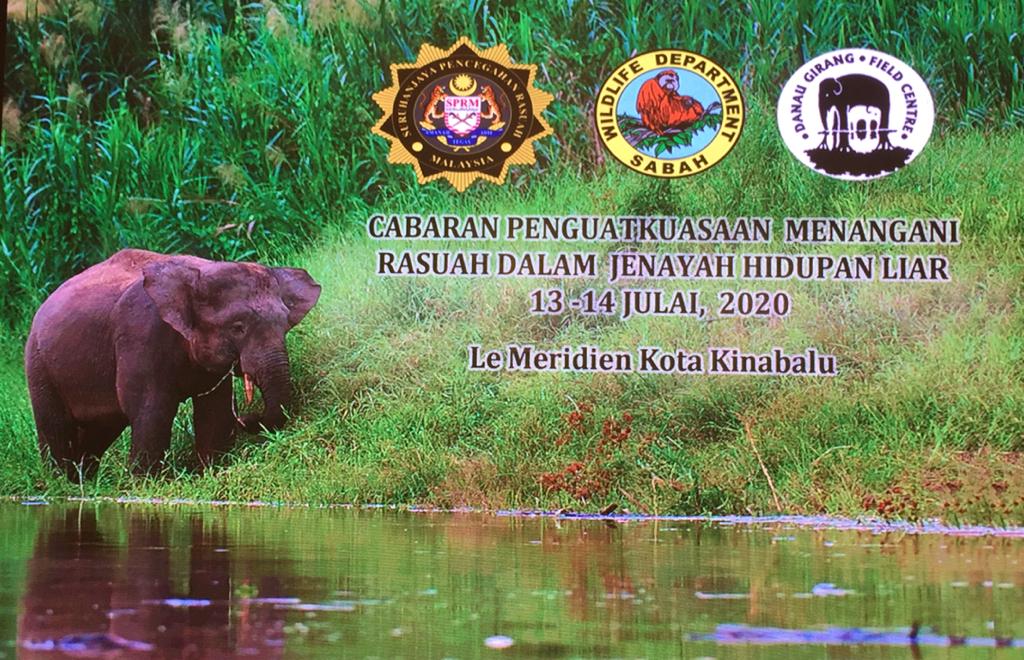Workshop on Challenges of Enforcement in Combating Corruption in Wildlife Crimes concluded last week
A joint press release from Sabah Wildlife Department, Malaysian Anti-Corruption Commission and Danau Girang Field Centre
21 July 2020, Kota Kinabalu: Sabah and Sarawak representatives of law enforcement agencies met in Kota Kinabalu on the 13 and 14 of July to increase awareness on anti-corruption laws, including witness and whistleblower protection. This workshop was part of the training available for the inter-agency Working Group on Wildlife Crime Intelligence.
The workshop, organised by Sabah Wildlife Department (SWD), Malaysian Anti-Corruption Commission (MACC) and Danau Girang Field Centre (DGFC), was a platform for the different agencies to share the difficulties when witnessing and denouncing corruption related to wildlife crimes.
According to the Director of the MACC, Mr Karunanithy A/L Y. Subbiah: “Worldwide, bribery in crimes involving wildlife smuggling is increasingly spreading at a worrying pace and has become one of the driving forces for illicit trade that is still hard to curb at national and international level.” He also emphasized that “bribery is no longer seen as only a local problem but has evolved into trans-boundary crime phenomena which coincides with the main topic of the workshop that focuses on trade and smuggling of wildlife internationally that usually involves bribery, smuggling, money laundering and others”.
“We must be aware that corruption is multifaceted and can occur at every stage of the wildlife, forestry and fisheries value chain. It can include bribes for information on the movement of animals or patrols, or to obtain rights and quotas, or grease the wheels of shipments, to ensure that they are not inspected or seized”, said Mr Augustine Tuuga, Director of the SWD, during the opening ceremony.
“This is the first time an anti-corruption workshop with emphasis on wildlife crimes takes place in Sabah”, remarked Tuuga. He also mentioned that the SWD must work with all possible partners to build understanding and ensure that wildlife, forest and fisheries agencies are trained and equipped to respond to corruption. The department is also looking forward to extend the collaboration with the MACC. “We will work towards the creation of an Organisational Anti-Corruption Plan”, said Tuuga.
DGFC’s Director, Prof Benoit Goossens, said he hopes the workshop will be an opportunity to increase inter-agency collaboration and to work towards the objectives of the Wildlife State Action Plans adopted last year by the State Cabinet.
“During the 2017 international workshops on proboscis monkey, Sunda clouded leopard and Bornean banteng, jointly organised by SWD and DGFC, it was recognised that poaching, hunting, and illegal killing and trade, were real threats to these and other species in Sabah. The information compiled at the workshops was included in the State Action Plans for each species, specifically to increase the capacities of wildlife law enforcement government agencies and of key partners in conservation. In particular, to train crime analysts, investigators and intelligence gatherers, and a certified forensic technician at the Sabah Wildlife Health, Genetic and Forensic Laboratory (WHGFL)”, Goossens added. “We have been working continuously with Sabah Forestry Department and with SWD towards the implementation of the action plans,” Goossens concluded.
This training is part of the program “Boosting enforcement and forensic capacity to deter wildlife crimes in Sabah”. Almost RM4 million have been funded by the Bureau of International Narcotics and Law Enforcement Affairs of the US Department of State through DGFC. The enforcement and forensic program will support a number of specialised training sessions, not only for the units of SWD, but also for the members of the Working Group on Wildlife Crime Intelligence. This week this group is following a training on Crime Scene Management and Advanced Investigative Techniques.
_______________________________________________
For more information on this press release, please contact:
Dr. Benoit Goossens
Danau Girang Field Centre

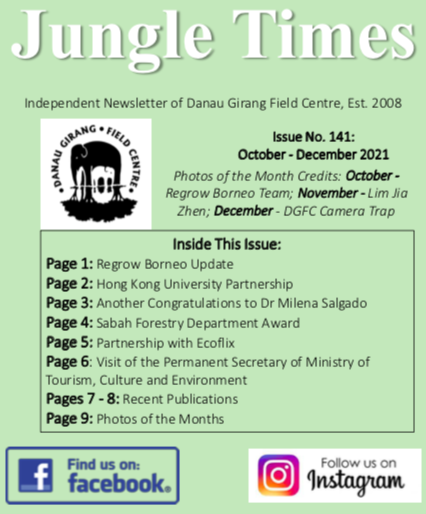 October - December 2021
October - December 2021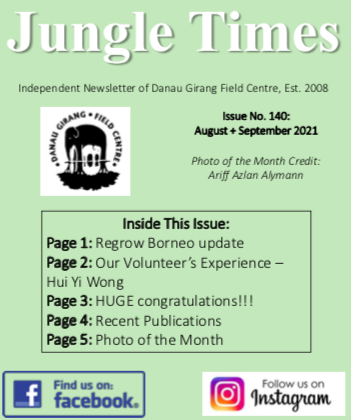 August - September 2021
August - September 2021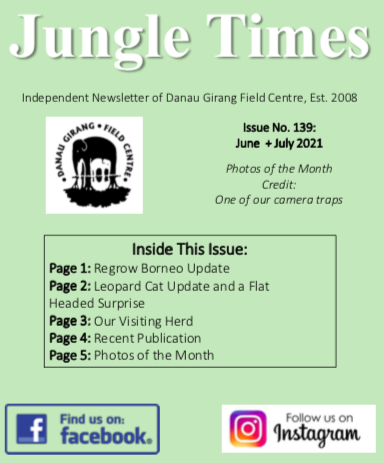 June - July 2021
June - July 2021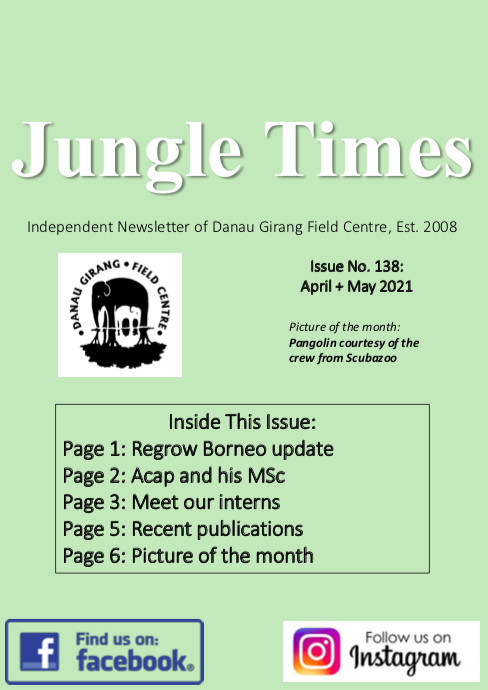 April - May 2021
April - May 2021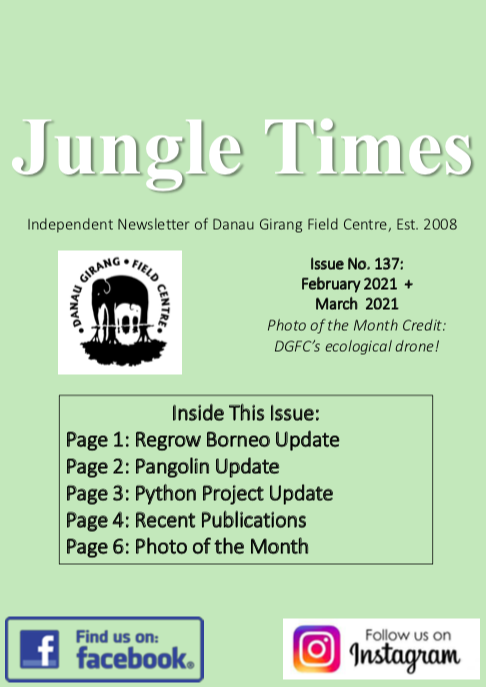 February - March 2021
February - March 2021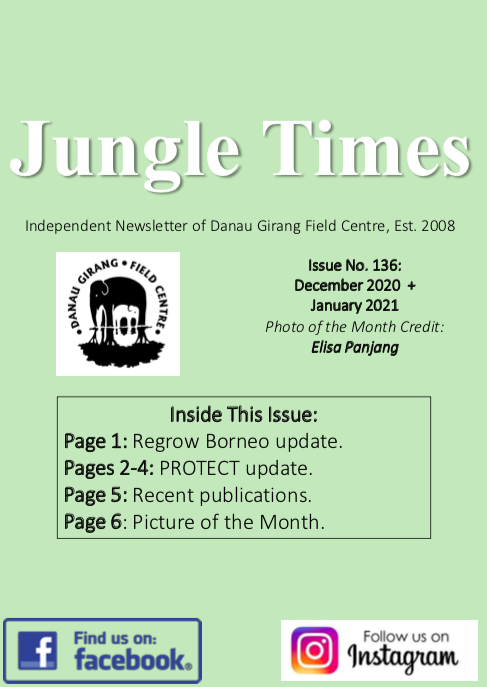 December 2020 - January 2021
December 2020 - January 2021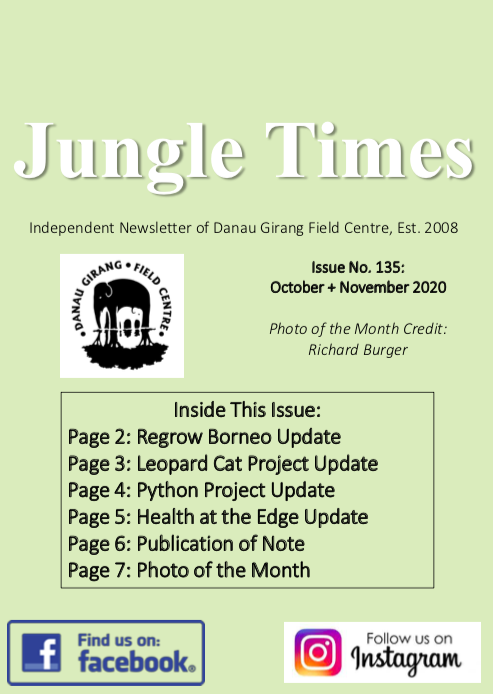 October - November 2020
October - November 2020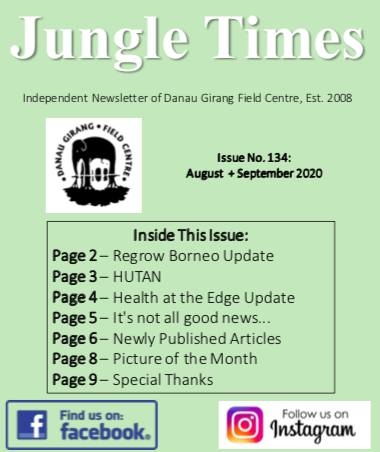 April 2020
April 2020